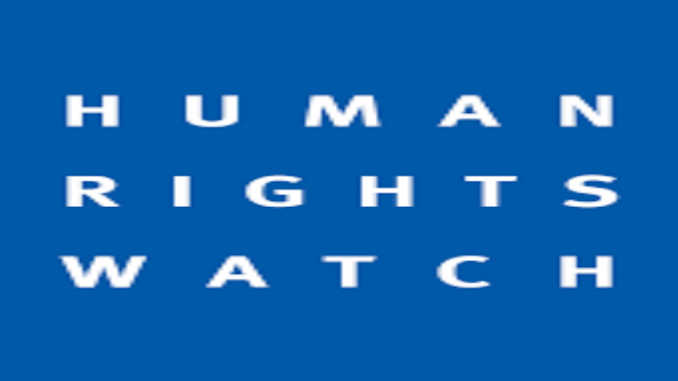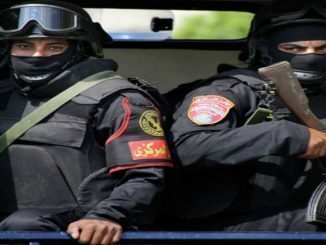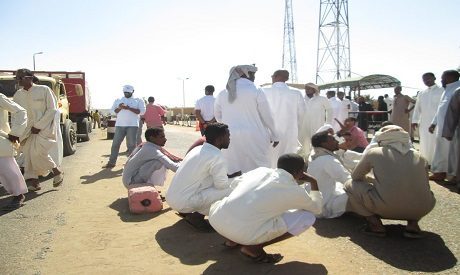
An Egyptian court called n the Interior Ministry to legally pursue the New York-based Human Rights Watch organization for not having state clearance to operate in Egypt.
The international rights origination doesn’t have an office or any full-time staff in the country.
In the same context, the court raised similar issues on Tuesday concerning other international rights organizations, including the National Democratic Institute (NDI) and Freedom House, which it claimed also don’t have official clearance for their operations.
Since 2012, both the NDI and Freedom House haven’t had a presence in Egypt as they were included in a case against a number of international NGOs.
In fact, the investigation into the funding of local and foreign organizations started under the Supreme Council of the Armed Forces (SCAF) rule in July 2011.
As a result, a repressive court ruling was issued by Egypt’s court against Egyptian nongovernmental organizations (NGOs) known as Case 173 of 2011, which alleges that as many as 37 NGOs have illegally received foreign funding.
In 2013, a criminal trial that concluded handed down sentences of between one and five years to 43 employees of five foreign NGOs and ordered the organizations to close.
In 2014, the Justice Ministry requested the formation of a new panel of three investigative judges chosen by the Cairo Court of Appeals.
The panel began looking into the work and finances of independent Egyptian NGOs when the Social Solidarity Ministry gave groups an ultimatum to register under an onerous associations law dating to Mubarak’s presidency.
Authorities have also place more crackdown and pressures on human rights activists. Negad al-Borai- human rights lawyer involved in drafting an anti-torture law, was interrogated at least six times in April 2015.
Al-Borai was investigated for illegal funding, establishing an unlicensed entity, and spreading false information.
Moreover, security officers and local government officials attempted to shut down in February 2016 the Nadeem Center for Rehabilitation of Victims of Violence and Torture, claiming that the center had violated the terms of its license, but providing no details.
On September 17,2016, Cairo criminal court issued a ruling to freeze the assets of three groups, as well as the personal funds of five human rights defenders, as part of an investigation into their foreign funding.
The ruling places the frozen assets under government custodianship, which means that the organizations and individuals can no longer make independent decisions about the seized money.
In late 2016, the case against HRW was filed by Shehata Mohamed Shehata , a pro-government lawyer who argued the prime minister and Social Solidarity Ministry should be held accountable for allowing such organizations to work unofficially in the country.
However, a court ruled it should be the responsibility of the Interior Ministry to halt the work of foreign organizations in Egypt, as their work concerns the “well-being and security of the nation.”
In fact,Human Rights Watch conducted several reports on human thoughts violations the military coup in 2013. In this context, Egypt’s court asserted, as the organization produced a report on the forced bloody dispersal of the pro-Muslim Brotherhood sit-ins at Rabea al-Adaweya and Nahda squares in 2013. Moreover, the HRW also claimed that the state crackdown led to the deaths of 817 people, constituting a crime against humanity.
As a result, the court ruled that HRW “issued flawed reports to foreign states that tarnished Egypt’s reputation,” are “based on the testimonies of biased individuals” and “violate state sovereignty,” while “ignoring the martyrs of the nation from among the military and police,” although HRW’s report also highlighted the deaths of security forces during the bloody dispersal and subsequently in acts of terrorism nationwide.
In addition, the court also raised the issue of HRW’s funding, making assertions that the international organization receives support from those who are “united in the same convictions and goals.”
In August 2014, the Egyptian security forces refused HRW’s executive director Kenneth Roth access through Cairo airport.
Egypt’s Foreign Affairs Ministry has been critical of the organization’s coverage of incidents in Egypt as it accused HRW of “propagating lies and supporting terrorism and politically-motivated fabrications.”
Moreover, Naguib Gobrael, from the pro-government Egyptian Union for Human Rights,filed a lawsuit before the Court of Urgent Matters, in August 2015, that called on the Egyptian authorities to expel HRW and ban it from operating in the country. However, the court ruled it did not have the jurisdiction to issue a verdict and referred the case to a higher-level court in November 2015.



